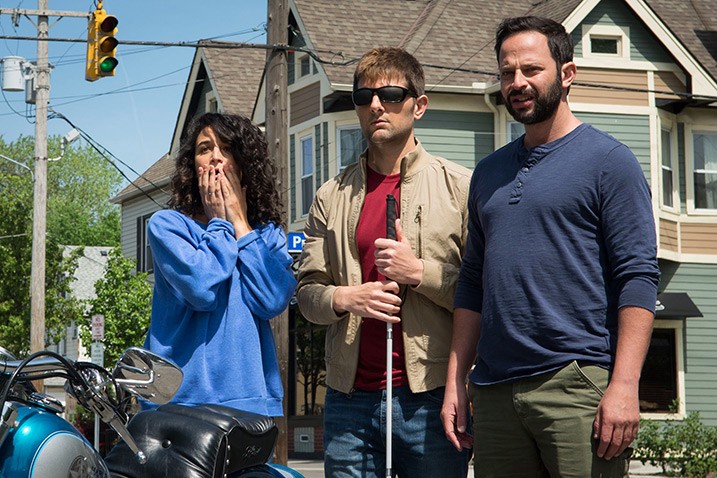Sophie Goodhart began her career in news and documentaries for UK television. She is perhaps best known for her short film “My Blind Brother,” which screened in competition at Cannes in 2003 where the short was nominated for the Palme d’Or. It was also selected for SXSW, Melbourne, São Paulo and London film festivals. Goodhart has gone on to write several films with The Barnes Brothers, including “The Locksmith” and “Sex Guaranteed.” (Press materials)
“My Blind Brother” will premiere at the 2016 Tribeca Film Festival on April 21.
W&H: Describe the film for us in your own words.
SG: Love for the same woman creates a rift between an overachieving blind athlete and his resentful brother.
W&H: What drew you to this story?
SG: My sister was diagnosed with multiple sclerosis when I was in my early 20s. I was embarrassed and surprised to find that after the initial sadness, I was jealous. I realized that she would be forever this amazingly brave person battling adversity while I would continue to be a self-indulgent flake. I thought this dynamic would be interesting for a script. Then I read a newspaper article about a blind swimmer and his sighted guide and thought that would be a great situation to place my siblings in. Also I love stories about shame, resentment and guilt.
W&H: What do you want people to think about when they are leaving the theater?
SG: I want the audience to be left wondering about their own ideas of charity, about attention and who deserves it and why and whether we are entirely truthful in the choices we make. I want us to laugh at our own foibles.
W&H: What was the biggest challenge in making the film?
SG: I was seven months pregnant when we started the shoot and I had to go back into the edit four days after giving birth. Also filming on water is a nightmare.
W&H: How did you get your film funded? Share some insights into how you got the film made.
SG: It took a long, long time. It’s hard getting a first film made. I essentially found a great producer, Tory Tunnell, who decided that I had a something interesting to say and she slogged away for many years to find the money. In the end WME came on board and they found producer Tyler Davidson. I owe them both a house full of ponies.
W&H: What’s the best and worst advice you’ve received?
SG: The worst: if you get any opportunity to make a film [you should] make it, whatever the circumstances. The best: Wait until you get the right cast.
W&H: What advice do you have for other female directors?
SG: Delusion and denial are your friends. Find people who are interested in what you have to say and work with them.
W&H: Name your favorite woman-directed film and why.
SG: Elaine May’s “The Heartbreak Kid.”







